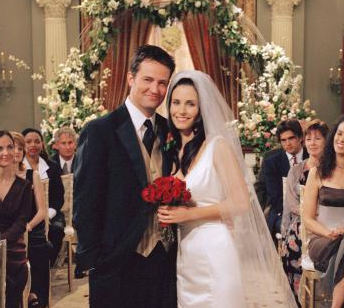Word of the Week: Amalgamate
Word: amalgamate
Pronunciation: ə-MAL-ɡə-mayt
Part of Speech: verb
Definition: combine or unite to form one organization or structure
Source: Oxford Dictionaries
Okay, perhaps I went with a more common word for this week’s vocabulary post. To be honest, I find this one particularly interesting because I’ve seen and heard various forms of it: as nouns, as a verb, and even as an adjective. It seems to be a popular choice for referring to combinations and mixtures. Why “unite” two things into one when you can “amalgamate” them instead?
To “amalgamate” two or more things is to combine them into a single structure or organization. The word arose in the early 17th century and comes from the Latin verb amalgamare “to mix”, which in turn stems from the noun amalgama, meaning “mercury alloy”. This noun derives from the Greek noun málagma, which means “emollient”.
A less common definition for the word “amalgamate” is in chemistry, where it’s usually used in the adjective form “amalgamated” to indicate a metal that has been alloyed with mercury. Note that the verb “amalgamate” stems from the noun “amalgam”, which means “a mixture or blend” or “an alloy of mercury with another metal”. I myself tend to use it most often in its noun form “amalgamation”, the action of combining or uniting. If you often join things in your stories and feel that common words like “merge” and “unite” are overused, “amalgamate” and its related forms are good words to keep on your vocabulary list!
What are your thoughts on this word? Any suggestions for future “Word of the Week” featured words?
Sonnet to my Greatest Role Model
If there were only one thing I could do
To show you how you mean the world to me,
The best gift I could think to give to you
Would be to share my love poetically!
Today I thank you, Mom, for all the love
And care you’ve given me to help me grow.
Your lessons have been great examples of
The wisdom that I someday hope to know.
Your love has nurtured me throughout my life,
And your support has always seen me through.
Your model of a perfect mom and wife
Is one I hope that I can live up to!
For God to bless you always, do I pray.
I hope you have a Happy Mother’s Day!
Happy Mother’s Day to my incredible mom! Thank you for being the greatest role model I could ever ask for. God bless you always! I love you, Mom!
Friends First: 5 Reasons Why the Best Romance is Based on Friendship
A year ago, I shared a blog post dedicated to two of the most important people in my life: a list of lessons on romance inspired by the love I’ve seen between them my whole life. I learned almost everything I know about love from them, which is why most of the romantic stories I write are about couples who started out as friends. If my parents taught me anything about romance, it’s that the best kind of love is based on friendship!
So to honor them again this year, here’s a new list of five details of loving relationships that you’re more likely to see in couples who started as friends. Keep these in mind if you ever write romance that blossoms from friendship! Enjoy!
1) You enjoy each other’s company.
 This one is a bit obvious, but it deserves to be pointed out nonetheless. You choose your friends based on how much you like them, and that depends on how much you enjoy spending time with them. Logically, the same principle should apply to romance: if you like being with your partner, you make an effort to prolong your relationship. One of the great advantages of starting out as friends is that you already know you like each other by the time you get together. When you already have fun together and make each other laugh often, the romance simply enhances an already beautiful connection. It’s like fast-forwarding through the awkward getting-to-know-you phase to the actual fun part of a relationship! Admittedly this might not be to everyone’s taste, but I highly recommend it. It worked for my parents, and it’s certainly working for me!
This one is a bit obvious, but it deserves to be pointed out nonetheless. You choose your friends based on how much you like them, and that depends on how much you enjoy spending time with them. Logically, the same principle should apply to romance: if you like being with your partner, you make an effort to prolong your relationship. One of the great advantages of starting out as friends is that you already know you like each other by the time you get together. When you already have fun together and make each other laugh often, the romance simply enhances an already beautiful connection. It’s like fast-forwarding through the awkward getting-to-know-you phase to the actual fun part of a relationship! Admittedly this might not be to everyone’s taste, but I highly recommend it. It worked for my parents, and it’s certainly working for me!
2) You know each other well and accept each other for who you are.
There’s nothing wrong with a little mystery in romance, but it’s so great when you don’t have to hide every little flaw you might have for fear of driving your partner away. A true friend is someone who not only knows almost everything about you, but accepts all the things that make you you, good and bad alike. In my experience, the freedom to openly express yourself and everything you like to your partner makes a relationship much more enjoyable in the long run, especially when that freedom is mutual. Let’s face it, you can’t hide your real self forever and you should never try to change yourself to please someone else, so if you’re lucky enough to fall for a friend who already loves you exactly the way you are, I say keep them!
3) You respect and value each other more.
You wouldn’t be friends with someone you don’t respect, right? So it stands to reason that if you’re romantically involved with someone you consider a friend, you’re much more likely to treat them as an equal. Respect is key in any relationship that hopes to last, so lovers who started as friends have the advantage of already beginning on an equal footing. This makes it much easier to build and maintain a healthy relationship: by respecting and valuing one another, you’ll help each other grow and become better people over time!

Move over, Ross and Rachel; Monica and Chandler are the real greatest couple of Friends!
4) You have greater intimacy with each other.
Ah, the best part of being in love! Superficial flings may be appealing to some, but when it comes to long-term commitment, romances based on friendship definitely have the upper hand. Enjoying each other’s company and knowing each other well leads you to trust each other completely, and with trust comes greater loyalty and intimacy. A deep emotional connection with another person is something most of us search for our whole lives (and many of us never find), so your best chance at finding such intimacy is with someone you’d consider your best friend!
5) Your love is more likely to last forever!
 For all the above reasons and more, lovers who started as friends are more likely to stay together for life. Friendship is the most solid foundation for love because life is most enjoyable when shared between two people who enjoy talking to each other, often make each other smile, understand each other well, and value each other for who they truly are. So try exploring this kind of love in your romantic stories, and maybe if you’re as lucky as my parents, you too will discover (or perhaps already know) that the best romance is based on friendship!
For all the above reasons and more, lovers who started as friends are more likely to stay together for life. Friendship is the most solid foundation for love because life is most enjoyable when shared between two people who enjoy talking to each other, often make each other smile, understand each other well, and value each other for who they truly are. So try exploring this kind of love in your romantic stories, and maybe if you’re as lucky as my parents, you too will discover (or perhaps already know) that the best romance is based on friendship!
What are your favorite kinds of romance? Do you write stories about love that starts as friendship?
Today’s creative writing post is dedicated to my parents, the happiest couple I know. Thank you for teaching me the value of love founded on friendship! Happy Anniversary, Mom and Dad! I love you both so much!
Word of the Week: Heuristic
Word: heuristic
Pronunciation: hyoo-RI-stik
Part of Speech: adjective
Definition:
- enabling a person to discover or learn something for themselves
- proceeding to a solution by trial and error or by rules that are only loosely defined
Source: Oxford Dictionaries
Here’s an interesting example of a word I first learned in its secondary definition before its primary meaning. When I started the data analysis for my thesis, I learned how to construct phylogenetic trees in a software program called PAUP*, which includes a step that searches for the best trees for a given dataset based on trial and error. Some time later, I noticed a featured iPad app in the iOS App Store designed to help readers learn Shakespeare for themselves. What do these two things have in common? They both have “heuristic” approaches!
Something described as “heuristic” allows someone to learn or discover a given subject for themselves. As a computing term, a “heuristic” procedure toward a solution is carried out by trial and error or loosely defined rules. The word arose in the early 19th century and derives from an irregular form of the Greek verb heurískō, meaning “I find”.
While not a particularly well-known word, “heuristic” could possibly be used as a poetic alternative for “hands-on”. Note that it can also function as a noun to refer to “a heuristic process or method”. I assume the word would most commonly refer to teaching approaches that allow students to learn on their own (as is the case of the “Heuristic Shakespeare” project), though people familiar with computing terms might also recognize it as a reference to trial-and-error programs (such as the “heuristic search” option in PAUP*). If you write about characters who prefer to learn things for themselves or even about computer programs that run on loosely defined rules, “heuristic” is a good word to add to your vocabulary list!
Bonus: in case you’re wondering what this Heuristic Shakespeare project is all about, here’s a short preview of it from Heuristic Media. Yes, Sir Ian McKellen is behind it! Enjoy!
What are your thoughts on this word? Any suggestions for future “Word of the Week” featured words?
Decontamination
Never leave the incubator unattended.
That’s the first lesson they teach you when you start at the lab. I wish I had listened.
Thankfully, the explosion was contained to the one room. The building has been evacuated as per safety protocol, and the cleanup crew is busy decontaminating the area while the head of the department has me fill out a statement for the report. I’ve never felt so guilty in my life. That’s saying something.
I have a bad history of putting living beings in danger. I squashed my sister’s hamster as a kid, ran over my neighbor’s cat as a teenager, and lost my friend’s dog on the street in my first year of college. And now I’ve endangered at least a dozen human beings by accidentally unleashing bacteria all over the laboratory. Unknown, unpredictable bacteria. There’s no telling what damage I could have caused if I hadn’t been alone when the incubator burst.
The cleanup crew has finished their work and is filing out of the lab. I’ve been told it’s safe to go back inside. While everyone else leaves, I throw on my cleanroom suit and head in to grab my notes. As I pass by the busted incubator, I feel a horrible sinking sensation in my stomach. Years’ worth of research has been lost tonight, and it’s all my fault.
I open my notebook and flip to the last filled pages. I want to figure out what went wrong. Could I have set the incubator temperature too high by mistake? Was there a malfunctioning piece in the machine? Or is this all just happening now because bad luck follows me wherever I go?
A tear splashes on the corner of the page. I wipe my eyes as I take a pen from the table and scribble a quick note about the explosion. After replacing the pen and skimming through my notes one last time, I close the notebook and glance up at the clock on the wall. It tells me I’ve been here over half an hour, much longer than I’d anticipated. Better start heading out.
Replacing the notebook on the table, I hurry back to the adjoining chamber to remove my suit before I head out, but I stop just inside the doorway when I hear voices in the hall. They must think everyone has already left. Standing still, just out of sight, I listen to them talk about the incident. I recognize two voices: the head of the department and the director of the lab. The director is saying it was lucky no one was injured by the explosion, otherwise the consequences could be catastrophic. The results from the last lab mice test came back this morning; they’ve just discovered that the bacteria we’ve been studying induce a lethal reaction in the subject.
My heart starts to race and I break into a sweat, but I dare not make a sound. The department head asks if we should quarantine everyone in the building, but the director reassures him that the bacteria are not airborne; infection only occurs from direct contact with the subject’s blood. Even if anyone had been contaminated, they wouldn’t last long enough to spread the disease beyond this isolated research facility, as the infection is fatal within hours. The head of the department mutters a curse against “that damn clumsy student”. He wishes I had never set foot in the lab in the first place.
I’ve heard enough. Moving away from the door, I turn and hurry back into the lab. This time I don’t bother with the suit, heading straight through the door toward the notebook and pen on the table before making a beeline for the room on the other side of the floor. Tears return to my eyes as I rush past the broken incubator.
All your fault… All your fault…
I’m no stranger to being cursed. Most people who know me end up wishing they’d never met me, usually after my bad luck causes them some sort of injury. Nobody likes me. Nobody ever wants me around. I don’t blame them. I’m a jinx, a curse, a disease.
You’re the real infection…
I rush into the freezer and slam the door behind me. I lean back against the wall, open the notebook, and start scribbling words on the blank pages in the back, important notes to all the people I’ve loved and wronged. By now the tears have blurred my vision so much that I can barely see the letters anymore. Tremblingly, I rip the last page from the notebook and clutch it close to my chest. Now all that’s left to do is wait.
A strange calm overtakes me as I flip through my notebook for the last time. This is best for everyone, I tell myself. Everything happens for a reason, right? Yes, they’ll all be better off this way. Shivering, I get to the last of my notes, the secret of how some loose shards of shattered glass and metal struck me in the explosion.
My strength begins to leave me and I stifle a cough. I close the notebook as well as my eyes and pull my sleeve down, covering the gash in my hand where the glass tore right through my glove. This is how they’ll find me in the morning, tears frozen on my cheeks and a piece of paper clutched tightly in my hand, containing a single word that says everything…
Contaminated.


Recent Comments